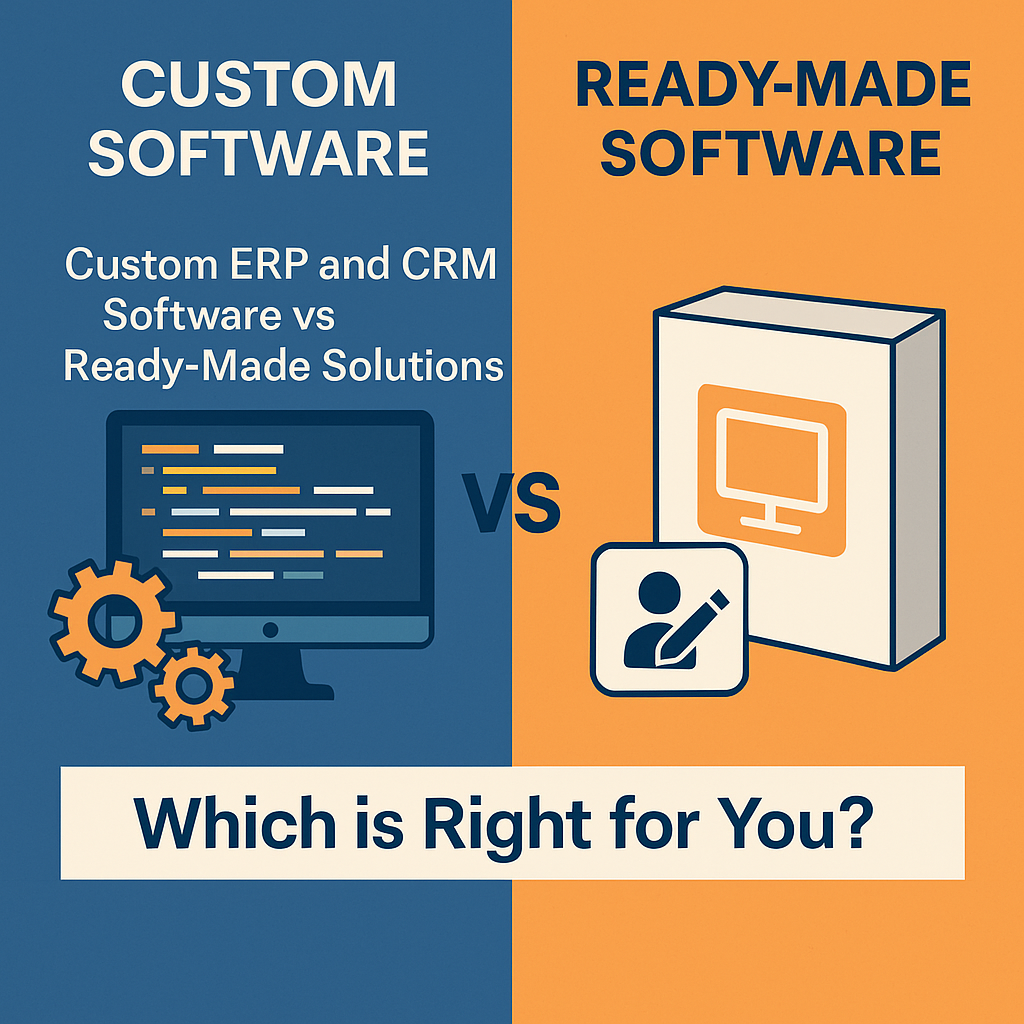Table of Contents
Choosing the right CRM and ERP system can be a game-changer for any business looking to streamline operations, manage data effectively, and improve customer engagement. But one major question arises early in the software selection process — should you choose custom-built software or go with a ready-made solution?
In this blog, we’ll uncover 6 critical differences between custom and ready-made CRM and ERP software, helping you make the right choice for your business.

1. Customization Level
Custom CRM and ERP software is designed from scratch to fit your business processes exactly. Every module, feature, and dashboard is built around how your company works. Whether it’s managing leads, automating invoices, or handling supply chain data — it’s all tailored to your needs.
Ready-made CRM and ERP tools offer a standardized set of features that cater to a wide range of industries. While they may work well for common business models, adapting them to niche workflows often requires third-party plugins or manual adjustments.
2. Implementation Time
Ready-made systems are quick to implement. In many cases, you can get started within days using pre-built templates and modules. This makes them ideal for startups or businesses with urgent operational needs.
On the other hand, custom CRM and ERP systems take longer to develop. The process involves business analysis, custom design, testing, and training. While this extends the timeline, it ensures your software works exactly how you want it to.
3. Total Cost of Ownership
Custom software requires a larger upfront investment due to design, development, and testing. However, the long-term savings can be significant — you avoid monthly subscription fees, user-based charges, and unnecessary features.
Ready-made CRM and ERP solutions are often more affordable initially but come with ongoing costs. These include monthly or annual licenses, fees for additional users or features, and recurring costs for support and upgrades.
4. Scalability and Flexibility
As your business grows, your software must evolve too. Custom-built CRM and ERP systems are more flexible and scalable. Developers can add features, integrations, and automation to keep up with your expanding operations.
With ready-made software, scalability depends on the vendor’s offerings. You may need to pay for higher-tier plans or use third-party tools to extend functionality, which can lead to fragmentation or performance issues.
5. Ownership and Data Control
With custom CRM and ERP solutions, you own the code, the features, and the data. You decide how data is stored, accessed, and protected. This is crucial for industries with strict compliance needs like healthcare, finance, or manufacturing.
In contrast, most ready-made systems are hosted in the cloud by the vendor. Your data resides on their servers, and you’re subject to their terms of service. While this setup is convenient, it limits your control over security and compliance.
6. Ongoing Support and Maintenance
Custom software gives you direct access to the development team. Updates, bug fixes, and new features are implemented based on your schedule. Support is often more personal and responsive since it’s based on your unique system.
Ready-made CRM and ERP platforms offer vendor-driven support. While they often have robust help centers and support teams, their solutions are generalized. You may experience delays or limitations in feature enhancements.
Final Thoughts: Which One Is Right for You?
If your business has unique workflows, requires tight data control, or plans long-term scaling, then custom CRM and ERP software may be the right path. The investment pays off in productivity, precision, and flexibility.
However, if you need a fast solution and your business processes align with standard modules, a ready-made CRM and ERP platform can get you started quickly without a big upfront cost.
Choosing between the two depends on your business size, budget, operational complexity, and long-term vision.
